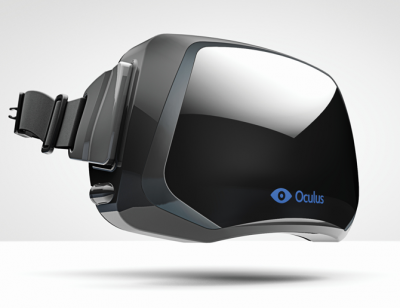Zenimax sleept Oculus Rift voor de rechtbank
Eerder kloeg Zenimax al over het feit dat Oculus Rift gebruik zou hebben gemaakt van zaken die al eerder werden ontwikkeld bij Zenimax zelf. Dat er belangrijke mensen van id software naar Oculus Rift waren getrokken, zal de situatie niet meteen hebben ontmijnd en nu is het hek helemaal van de dam. Zenimax heeft immers een rechtszaak aangespannen tegen Oculus Rift voor de diefstal van 'trade secrets'. Op de volgende pagina kan je in elk geval de volledige mededeling lezen voor zij die geïnteresseerd zijn.
Men stelt dat men geprobeerd heeft om deze zaak onderling te regelen, maar dat er niks uit de bus is gekomen. ZeniMax ziet zichzelf dan ook genoodzaakt om naar de rechter te stappen aangezien men vindt dat Oculus Rift en diens oprichter "op illegale wijze handelsgeheimen van ZeniMax heeft verworven met betrekking tot virtual reality. De copyrights en handelsmerken die ZeniMax heeft, werden daarbij geschonden".
Zenimax beweert dat het haar technologie ter beschikking heeft gesteld op de uitdrukkelijke voorwaarde dat "de intellectuele eigendom exclusief van ZeniMax blijft en niet gebruikt, vermeld of verschoven kan worden naar een andere partij zonder de toestemming van ZeniMax". Omdat Oculus Rift zelf stelt dat het niks verkeerds heeft gedaan, ziet ZeniMax geen andere keuze dan naar de rechtbank te stappen.
De mensen van Oculus Rift hebben zelf ook al gereageerd en laten weten dat de rechtszaak ongegrond is en dat men zich stevig zal verdedigen.
ROCKVILLE, Md., May 21, 2014 (BUSINESS WIRE) — ZeniMax Media Inc. and its subsidiary, id Software LLC, filed suit today against Oculus VR, Inc. and its founder, Palmer Luckey, for illegally misappropriating ZeniMax trade secrets relating to virtual reality technology, and infringing ZeniMax copyrights and trademarks. ZeniMax is also asserting claims for breach of contract, unjust enrichment, and unfair competition against the defendants. The suit was filed in federal court in the U.S. District Court for the Northern District of Texas.
The suit arises from the defendants' unlawful exploitation of intellectual property, including trade secrets, copyrighted computer code, and technical know-how relating to virtual reality technology that was developed by ZeniMax after years of research and investment. ZeniMax provided this valuable intellectual property to defendants under a binding Non-Disclosure Agreement that specifies such intellectual property is owned exclusively by ZeniMax and cannot be used, disclosed, or transferred to third parties without ZeniMax's approval. ZeniMax's intellectual property has provided the fundamental technology driving the Oculus Rift since its inception. Nevertheless, the defendants refused all requests from ZeniMax for reasonable compensation and continue to use ZeniMax's intellectual property without authorization.
All efforts by ZeniMax to resolve this matter amicably have been unsuccessful. Oculus has recently issued a public statement remarkably claiming that "ZeniMax has never contributed IP or technology to Oculus." Meanwhile, Luckey has held himself out to the public as the visionary developer of virtual reality technology, when in fact the key technology Luckey used to establish Oculus was developed by ZeniMax.
"Intellectual property forms the foundation of our business," said Robert Altman, Chairman & CEO of ZeniMax. "We cannot ignore the unlawful exploitation of intellectual property that we develop and own, nor will we allow misappropriation and infringement to go unaddressed."
"ZeniMax and id Software take their intellectual property rights seriously," said P. Anthony Sammi, a Partner of Skadden, Arps, Slate, Meagher & Flom LLP which represents ZeniMax and id in this matter. "We now look to the federal courts and will pursue all appropriate measures available under the law to rectify defendants' egregious conduct," he added.










